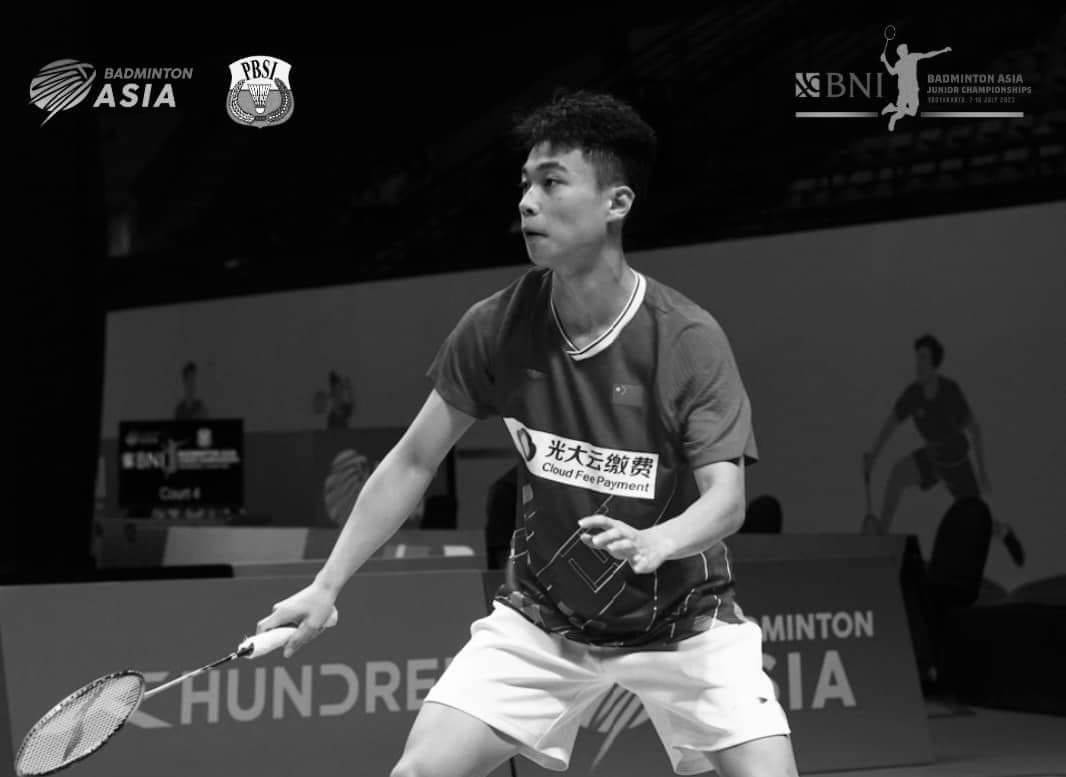Medical expert criticises lack of timely medical attention to Zhang
During a medical emergency like a sudden cardiac arrest, the medical team needs to act fast to save a life. They don’t have to even wait for the umpire or referee’s permission to run onto the court to treat a player.

KUALA LUMPUR - There have been numerous cases of social badminton players collapsing on court and dying over the years.
But, the badminton world was shocked by the recent passing of Chinese player Zhang Zhijie.
On June 30, in what could be the first in-competition casualty in badminton, 17-year-old Zhang collapsed on the court during the 2024 Badminton Asian Junior Championship in Yogyakarta, Indonesia.
The cause of death is believed to be a cardiac arrest. He was pronounced dead on arrival at the hospital.
His death has now sparked a huge controversy in the face of the long duration it took to administer first aid by the medical team on duty at the tournament.
As the match involving Zhang was televised live and the video of the incident widely shared in social media platforms, the delay also caused consternation among spectators who, like players and officials, are now demanding answers.
All-Indonesia Badminton Association (PBSI) has denied any delay in respect of medical aid rendered to Zhang, as its spokesperson reportedly said the medical team had to wait for referee’s permission to enter the court. The badminton world is off course at odds with this contention and rightly too.
Badminton World Federation (BWF) Medical Commission chairman Datuk Dr Gurcharan Singh, who is better known as Dr Guru, is one of those who feels strongly that Zhang's death was in vain, that the player ranked world number eight among juniors, could have been saved if he had received timely help.
"I have looked at the video clip of Zhang's collapse on court several times. I feel there was a serious lapse in respect of the professional approach towards rendering emergency medical attention to the player. There were multiple errors involved.
"In a sudden cardiac arrest situation, the medical officer must assess and perform CPR (cardiopulmonary resuscitation) within two minutes of the player collapsing on court. It includes the use of an AED (automated external defibrillator) to stabilise his or her condition and then be taken quickly to the nearest hospital.
"During a medical emergency like a sudden cardiac arrest, the medical team needs to act fast to save a life. They don’t have to even wait for the umpire or referee’s permission to run onto the court to treat a player...It is common sense. BWF on-court medical officers are well trained to cope and act to such an emergency.
"For every minute that is wasted, the chance of survival is reduced by 10 per cent. Enroute to the hospital if no oxygen, CPR and/or AED administered, he might be in a vegetative state,” he told Bernama.
He said the fact that the medical team at the Asian Junior Championship, firstly responded late to diagnose sudden cardiac arrest and failure to initiate CPR as well as use of the AED, basically removed any chance of Zhang's survival.
"The CPR and AED should have been the first line of treatment before removing the player from the court. The medical team failed in that aspect,” he added.
Dr Guru highlighted that it was the responsibility of Badminton Asia and the local organising committee to ensure trained medical doctors were appointed during international events to address emergency situations such as a cardiac arrest.
According to Dr Guru, AED is an important user-friendly piece of equipment that a layman can operate. It gives step by step directions in vernacular languages when to shock or not to shock the person as well as provides information on the quality of the CPR in real time.
The competitiveness and the level of play in badminton is continuously very high, thus, players routinely face intense physical and mental stress as well as the tight schedule of international and national competitions that players need to participate provides little recovery time.
This sad incident did not surprise Dr Guru as he had forewarned all involved in World Badminton at meetings that sudden cardiac arrest will happen during badminton competitions without warning and the need to be prepared and respond professionally to save the life of an elite young athlete.
He said doctors and supporting staff trained to handle medical emergencies are the appropriate personnel to be appointed to such tournaments.
Dr Guru opined that, no badminton event should commence without the presence of emergency equipment, especially oxygen, AED, spinal board stretcher and the presence of an ambulance - a minimum requirement.
The Chinese Badminton Association through a statement on July 1 expressed profound grief over the tragic passing of the outstanding athlete, while BWF said it is taking all necessary steps to thoroughly review the emergency response protocols and guidelines if required.
Following that, China’s Xinhua news agency reported that, Zhang’s sister demanded explanation for his death on Chinese social media platform Weibo on last Wednesday.
The Chinese badminton team showed resilience despite the sorrow of Zhang’s passing during the final group stage against Japan, to march on and defeat Taiwan and Malaysia in the quarter-finals and semi-finals as well as South Korea in final to claim the team event crown.
Dr Guru has served as a medical officer at all the FIFA World Cup tournaments since the 2002 Korea/Japan edition and six Olympics Games since the 2000 Sydney Games in badminton and football (2004 Athens, 2008 Beijing, 2012 London, 2016 Rio, and 2020 Tokyo) competitions. He will be officiating for the seventh time at the Paris 2024 Games for badminton. - BERNAMA










